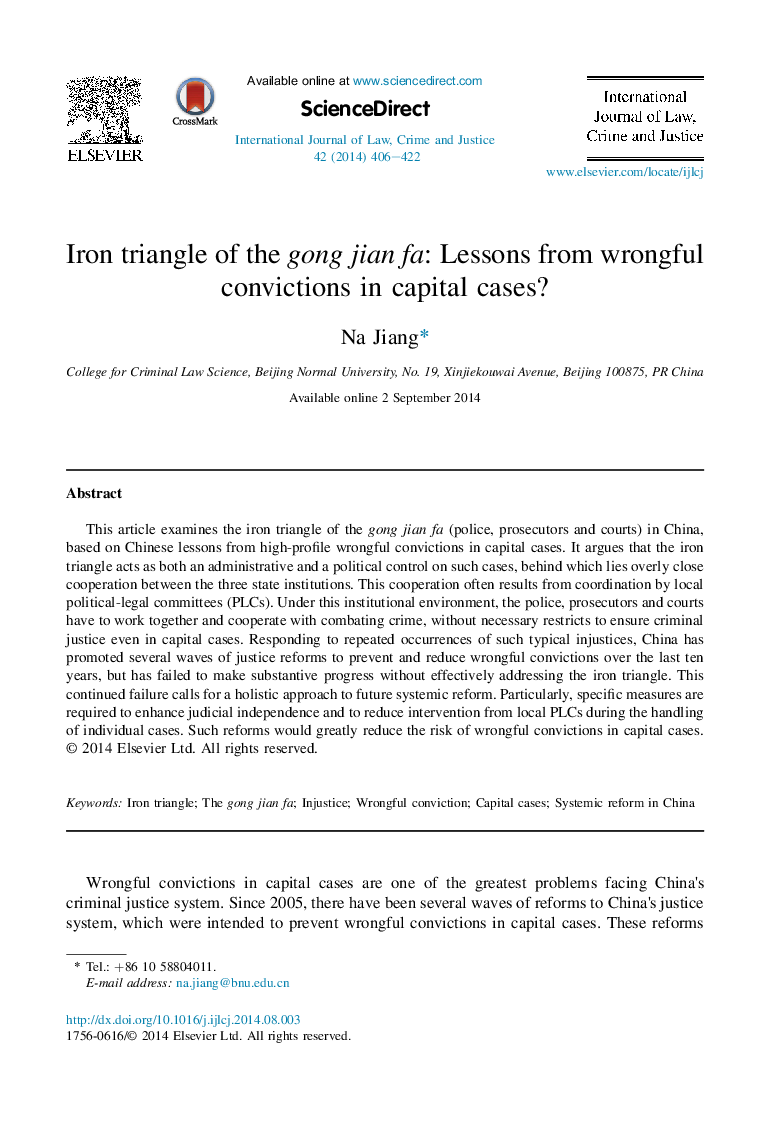| Article ID | Journal | Published Year | Pages | File Type |
|---|---|---|---|---|
| 1097899 | International Journal of Law, Crime and Justice | 2014 | 17 Pages |
This article examines the iron triangle of the gong jian fa (police, prosecutors and courts) in China, based on Chinese lessons from high-profile wrongful convictions in capital cases. It argues that the iron triangle acts as both an administrative and a political control on such cases, behind which lies overly close cooperation between the three state institutions. This cooperation often results from coordination by local political-legal committees (PLCs). Under this institutional environment, the police, prosecutors and courts have to work together and cooperate with combating crime, without necessary restricts to ensure criminal justice even in capital cases. Responding to repeated occurrences of such typical injustices, China has promoted several waves of justice reforms to prevent and reduce wrongful convictions over the last ten years, but has failed to make substantive progress without effectively addressing the iron triangle. This continued failure calls for a holistic approach to future systemic reform. Particularly, specific measures are required to enhance judicial independence and to reduce intervention from local PLCs during the handling of individual cases. Such reforms would greatly reduce the risk of wrongful convictions in capital cases.
